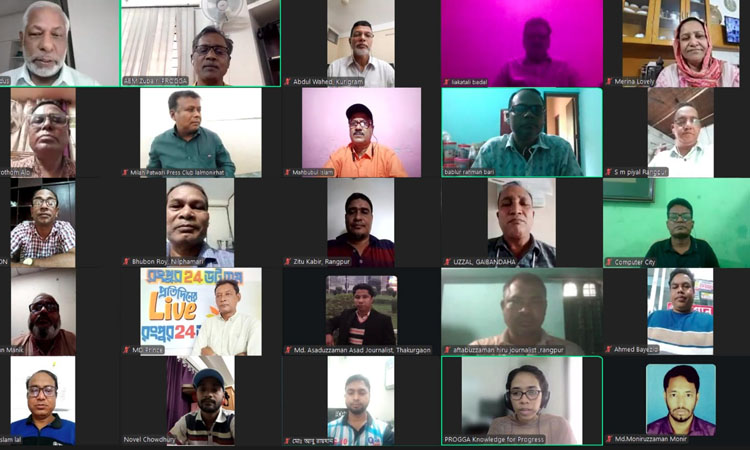News Flash
News Flash

RANGPUR, Sept 18, 2025 (BSS) - Speakers at a workshop for journalists today underscored the urgent need to ensure the uninterrupted supply and availability of anti-hypertensive medicines at all healthcare facilities at the grassroots level to address the growing hypertension crisis in the country.
They said Bangladesh is experiencing a significant surge in hypertension cases, with one in every four individuals currently suffering from the condition. Despite being diagnosed, many patients are unable to control their blood pressure due to irregular access to medication and inadequate follow-up.
Although free anti-hypertensive medicines are being provided at Community Clinics and Upazila Health Complexes, participants highlighted persistent supply shortages stemming from a lack of sustainable funding and other systemic challenges.
These observations were made during a virtual workshop titled "Hypertension Control in Bangladesh: Progress, Challenges and Way Forward", organized by PROGGA (Knowledge for Progress) with support from Global Health Advocacy Incubator (GHAI).
A total of 30 journalists from various print, electronic, and online media outlets across Rangpur division participated in the event.
During the workshop, it was informed that 35 ministries and divisions have recently signed a Joint Declaration on Non-Communicable Diseases (NCDs) to enhance inter-ministerial coordination in the prevention and control of NCDs.
Additionally, a recent report by the Health Sector Reform Commission recommended the provision of essential medicines, including anti-hypertensives, free of cost at the primary healthcare level.
Speakers noted that hypertension is among the top three causes of death and disability in Bangladesh. To effectively address this challenge, they emphasized the importance of ensuring a steady supply of anti-hypertensive medicines in all Community Clinics and Upazila Health Complexes, as well as increasing the budgetary allocation for NCD prevention and treatment.
Muhammad Ruhul Quddus, Bangladesh Country Lead of GHAI, and ABM Zubair, Executive Director of PROGGA, attended the workshop as discussants.
Presentations on the status of hypertension control in the country were delivered by PROGGA's Director Md. Shahedul Alam and Coordinator Sadia Galiba Prova.